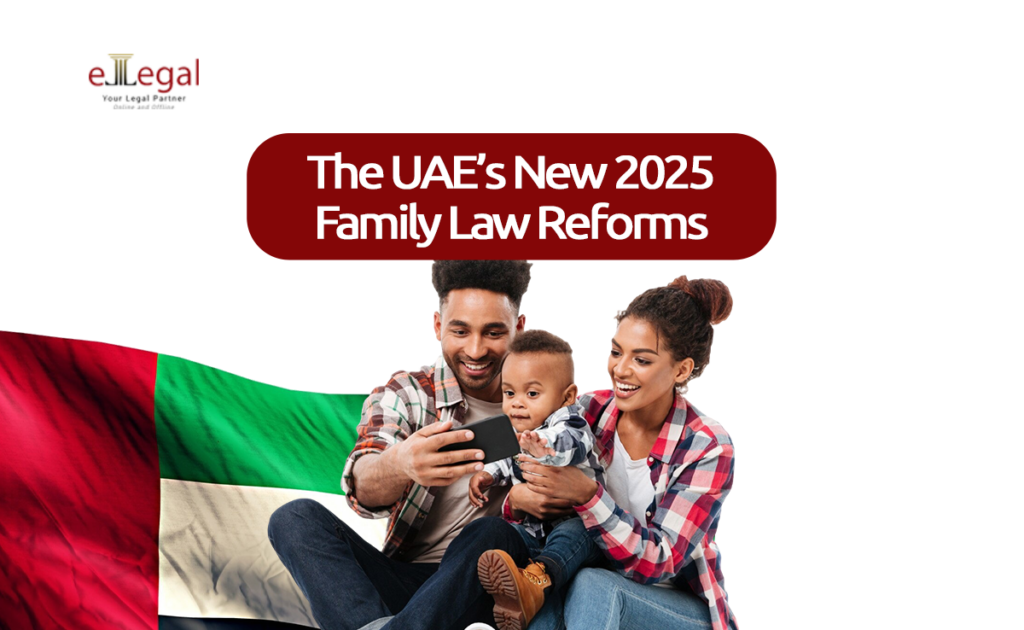The United Arab Emirates (UAE) is ushering in a transformative era by introducing its new family law, set to take effect in April 2025. This comprehensive legislation reflects the nation’s commitment to modernizing its legal framework, emphasizing the protection and well-being of children and families. The reforms encompass significant changes in child custody arrangements, financial rights, educational guardianship, and regulations for sponsoring family members.
Extended Child Custody Provisions
One of the most notable changes in the UAE’s new family law is the extension of the child custody age to 18 for both boys and girls. Previously, mothers were granted custody until boys reached 11 and girls 13. Under the new law, children aged 15 and above have the right to choose which parent they wish to live with, provided the court deems their decision to be in their best interests. This shift underscores a stronger focus on the welfare of children while respecting their growing independence as they mature.
Empowering Non-Muslim Mothers
In a positive change, the new family law lets non-Muslim mothers keep custody of their children from Muslim fathers past the age of five, as long as the court agrees. Before, custody would automatically go to the father at that age. Now, courts have more flexibility to focus on what’s best for the child, reflecting the UAE’s inclusive approach to its diverse community.
Equal Travel Rights for Parents
Both parents are now granted equal travel rights under the new law, allowing either parent to travel alone with their child for up to 60 days per year. Extensions may be granted in special circumstances, such as medical needs or other justifiable reasons. This update balances parental rights and helps prevent unnecessary disputes while still ensuring the child’s welfare remains the central focus.
Strict Oversight of Children’s Documents
Tighter rules have been put in place for handling children’s identification documents. While mothers will keep the Emirates IDs and fathers hold the passports, any misuse, like unauthorized travel, could lead to serious legal consequences, including fines or jail time. These new measures close gaps in the old law, particularly for travel within GCC countries where passports aren’t needed, ensuring the rights of everyone involved are better protected.
Criminal Penalties for Violations
New legal provisions have introduced stricter penalties for those who violate family rights and protections. Custodians who fail to follow travel rules or don’t provide important documents, such as a child’s passport or Emirates ID, to the rightful guardian could face fines ranging from Dh5,000 to Dh100,000, or even jail time in serious cases.
Additional penalties are in place for offenses like misusing a child’s funds, spending money intended for the child after custody arrangements have ended, or travelling with a child without proper consent from the guardian or court. These steps are designed to safeguard children and prevent the misuse of parental responsibilities.
Stronger Protections for Custodial Parents
Custodial parents, particularly mothers, now have enhanced protections in place. Moving out of the family home no longer means an automatic loss of custody, as long as the child’s well-being is safeguarded.
This change acknowledges the complexities of family situations and ensures that custody decisions prioritize the child’s best interests. Support for families has expanded to include more than just traditional cash payments. Contributions such as school fees, medical expenses, in-kind assistance, and other benefits are now recognized as valid forms of support.
To protect families, alimony payments are prioritized over other debts, including unpaid wages or legal fees. This ensures that families receive financial assistance quickly, reducing delays and alleviating financial stress during challenging times. Additionally, the law also provides extra financial safeguards for wives. They now can request backdated maintenance for as long as six months and can ask for increases in the required support payments.
Revisions to Financial Support
The law broadens the definition of family support to include non-cash assistance, such as benefits or in-kind contributions. This added flexibility allows families to meet their specific needs more effectively. Wives can now claim backdated maintenance for up to six months and request increases in mandated amounts. The law also reprioritizes debts, giving monthly alimony payments precedence over most other debts, such as unpaid wages or professional fees. This ensures that financial obligations to families are met promptly, even in complex financial situations.
Streamlined Dispute Resolution
The legislation introduces measures to expedite family-related disputes. Educational guardianship remains primarily with the mother but can now be addressed by the Urgent Matters Court, which is tasked with resolving disputes more efficiently. This development eliminates lengthy delays that previously left families in limbo, especially in educational matters, where disputes could take up to a year to resolve.
Conclusion
Navigating the world of family law can be daunting, particularly with the new changes in the field. At eLegal Consultants, our experienced Family Law Attorneys are dedicated to offering you expert guidance and customized support throughout your journey. With a thorough understanding of UAE Family Law, we handle even the most complicated cases with precision and empathy. Our team is passionate about defending your rights and striving for the best results for you and your family. Contact us today.




